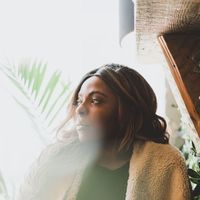Waves of Loss and Revolution
Dealing with my dad's death to COVID-19 during a year of devasting loss and trauma for the Black community has taught me painful lessons about grief.
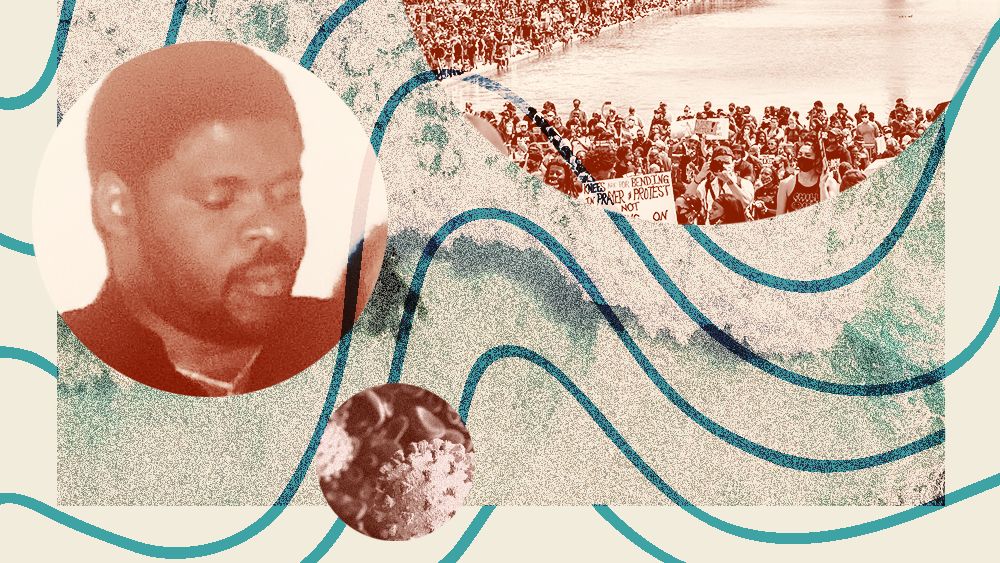
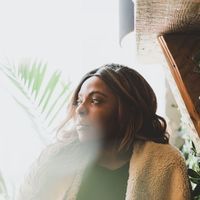
I had a dream that I barely remember. Your father is gone. The words snatched me out of my sleep. I didn't tell anyone about the dream for fear of speaking it into reality. The next day my sister called to tell me he had been admitted to the hospital. My mother told me later that before they went in, he joked, "You know what they say: When you walk in here, you don't come out." A joke only my father would think was funny. He tested positive for COVID-19. Then the waves started.
I have always been fascinated by waves. The wide ones the ferry makes; the tiny bumps when you're sitting by the pier; the try-hards at Coney Island. I could stare at waves all day—pictures, GIFs, or, of course, real ones at the beach. Even my Alexa knows it's my go-to-sleep sound. Now, the waves are the hardest part.
My mother works on the frontlines as a nurse, my older sister is an essential worker in a hospital, and my younger sister, a restless soul, frequently roams the streets of The Bronx. "Please, be careful," I begged her over the phone once COVID-19 lockdowns began. "For me, just try not to leave the house." I was worried about all three of my girls. The thought of them falling ill with coronavirus would hit me with anxiety over breakfast. Sometimes, I could taste the saltiness from my tears as I brushed my teeth in the morning, riling myself up over what could happen to them. But I was never really worried about my dad.
My father was the type of man who made sure you knew when he was sick. He would moan loudly, sigh heavily, and his coughs could be heard through every wall in the house. A mild cold would have you thinking he had a severe case of pneumonia...but, then, he did. It happened slowly. He wasn't making it a big deal, for once, so, for once, we didn't either. Just before that, I had come back to my Brooklyn apartment from a vacation in London, and I had a cough that wouldn’t go away. Then came the fever, the body aches, and later the loss of taste and smell. I didn't get tested, but I had a feeling this was more serious than I allowed my parents to know. I shook it off. I wasn't sure how my father caught it but there was no doubt in my mind that he would shake it off too. He was strong and without underlying health conditions.
My mother noticed a distinctive change in his condition around the same time protestors started rallying to open the economy back up. There were groups of people chanting, carrying signs reading, "I want a haircut,” yelling in police officers' faces, and strapping themselves with more than enough guns to exercise their rights. My father made his way to the hospital in the moments half the country decided they were bored of quarantine, that the virus was fake, and after we watched a Black man being murdered over a counterfeit $20 bill.
While my dad may have put on a little bit of a show when he felt under the weather, he was a mountain. He said everything with his chest, bulldozing you with his opinions. He was right; you were wrong. If you crossed him, you could forget about any future conversation. He was the embodiment of the phrase, "keep your circle close." His circle was his family, and no one else mattered. He held us tight. Sometimes, too tight. His honest nature, when it had nowhere else to turn to, would turn to us and cut deep.
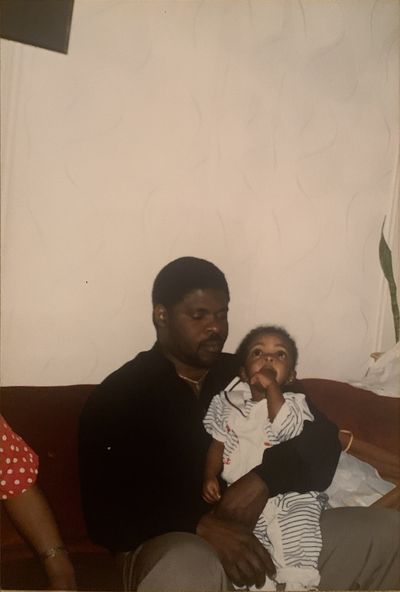
The writer as a toddler with her father.
When I moved out four years ago, I ignored his phone calls. That man loved to leave a voicemail. I have saved almost all of them for entertainment alone. When I did answer, I would change the subject if he mentioned us hanging out or going to dinner. We butted heads on almost everything as adults, but when I was younger, I worshipped him. It didn't matter that he made me cry with his candid words because when he said something to make me smile, I clung to it. As I got older, the clinging stopped. Everything turned into an argument. I would get defensive instantly. When we spoke, I would cut him off before he would say something that would cause the back of my eyes to sting. By the time I left home, most of our conversations were filled with brash comments and lectures, mostly about the career I wanted.
Get exclusive access to fashion and beauty trends, hot-off-the-press celebrity news, and more.
When the pandemic hit, something shifted. I started answering my dad's calls and texts. What was I going to say if I ignored them? I'm at work? More often than not, the calls would end up as one-way conversations: him talking at me, but strangely, it was comforting. It was normalcy amongst the craziness that surrounded all of us in such a lawless time. We started saying, “I love you” when we got off the phone, which was new. Not strange, but not common for us. Now, these calls were our only way to have contact, so the I love yous seemed necessary. That's one comfort I'll always have. I know the last words he heard me say were, “I love you.”
Every time I thought my head could stay above water, another wave would pull me back like a rip current.
Everything after his admittance to the hospital was a series of nerve-wracking occurrences. The news about his health continuously oscillated. Every time I thought my head could stay above water, another wave would pull me like a rip current. Most of my father's symptoms were gone (up); his cough and shortness of breath wouldn't go away (down); the doctors thought the lasting symptoms might be caused by psychological reasons (up); they found a clot by his heart (down); it's minute, nothing to worry about (up); they need to increase his oxygen levels (down); he needs to be intubated (down); he signed a DNR (down); nothing is working (down). His time there was filled with ripples of uncertainty until we needed to steel our hearts for the inevitable. My father—the strongest, the most outspoken, a figurative giant in my life—wasn't coming home.
While I was facing life without my dad, the world was living through historical moments. Unfortunately, the tragedies of George Floyd, Breonna Taylor, Elijah McClain, and many others is not a new experience for Black people. It’s all a part of the steady and consistent stream of oppression that has happened continuously over so many years. Now we are back at a tipping point with the Black Lives Matter movement. Thousands march around the world hoping for our voices to be heard over what seems like the thundering sound of the ocean hitting rocks.
Two monumental global events and I'm…tired. Every question I'm asked, I find myself rolling my eyes or looking at a text with disdain. "How are you?" How the fuck do you think I am? I say aloud to no one as I type back, "I'm alright. Just pushing through," I know every text means well, but my anger and fatigue don't care. My father just passed and the country is on fire because some people don't think I should be treated like an equal due to the color of my skin. A large percentage of the country cares more about statues than about the prejudice they represent and the racism taught, learned, and embedded into every system around us. At this point, everything is taking a toll on my psyche. The word exhausted, for me and other Black people, doesn't seem to cut it.
I was told by my parents my entire life that I was “the glue.” Grounded and dependable. “You're the glue of this family.” But I wasn't ready for this. I feel unbalanced and unsure of everything going on around me. The whole world is burning and there are times throughout the day when I feel absolutely nothing and other times I feel pure rage. And some days, I can't move because I feel like I'm empty, just going through the motions of helping those around me, then drinking to fall asleep.
The word exhausted, for me and other Black souls, doesn't seem to cut it.
But through all this, I try to find small glimpses of hope. Like, genuinely laughing at some crass thing my dad said when he was here; seeing a petition I signed or a fund I’ve donated to has met its goal; seeing children on top of their parents’ shoulders at a protest. This is what I hold on to. These glimpses are one of the few things that help me cope, hopeful thoughts of the future. Hopeful that my family will get through this and not feel this insistent hole that, right now, feels like it will never go away. Hopeful that the result of the election is just the beginning of the tide turning. Hopeful that I'll eventually be able to listen to the voicemails that he loved to leave.
I miss my dad (down). I think he's finally at peace (up). I hate that we are still fighting just to be seen as humans (down). I'm so proud that we continue to fight against injustice and for an equal world (up).
Up and down. Push and pull. Grounded and unbalanced.
Before all of this, I fixated on waves and the movements they made. The way they ebbed and flowed after they broke apart. Looking at them now, it's more than that. The way they rise and fall is all a reminder of what we face during life. At some points, there will be peaks, critical levels, turbulent moments, but they always pull back and calm eventually.
RELATED STORIES
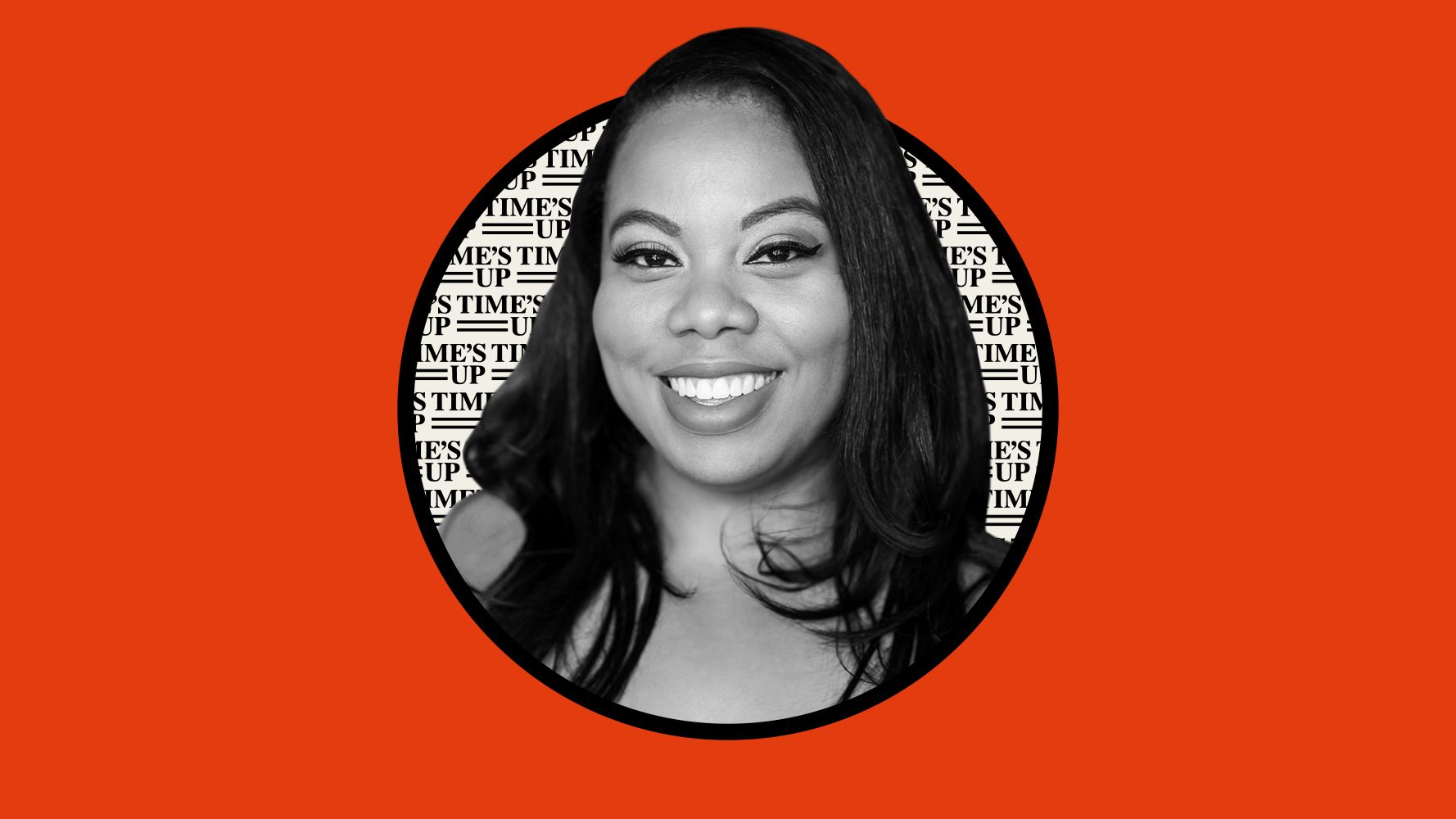
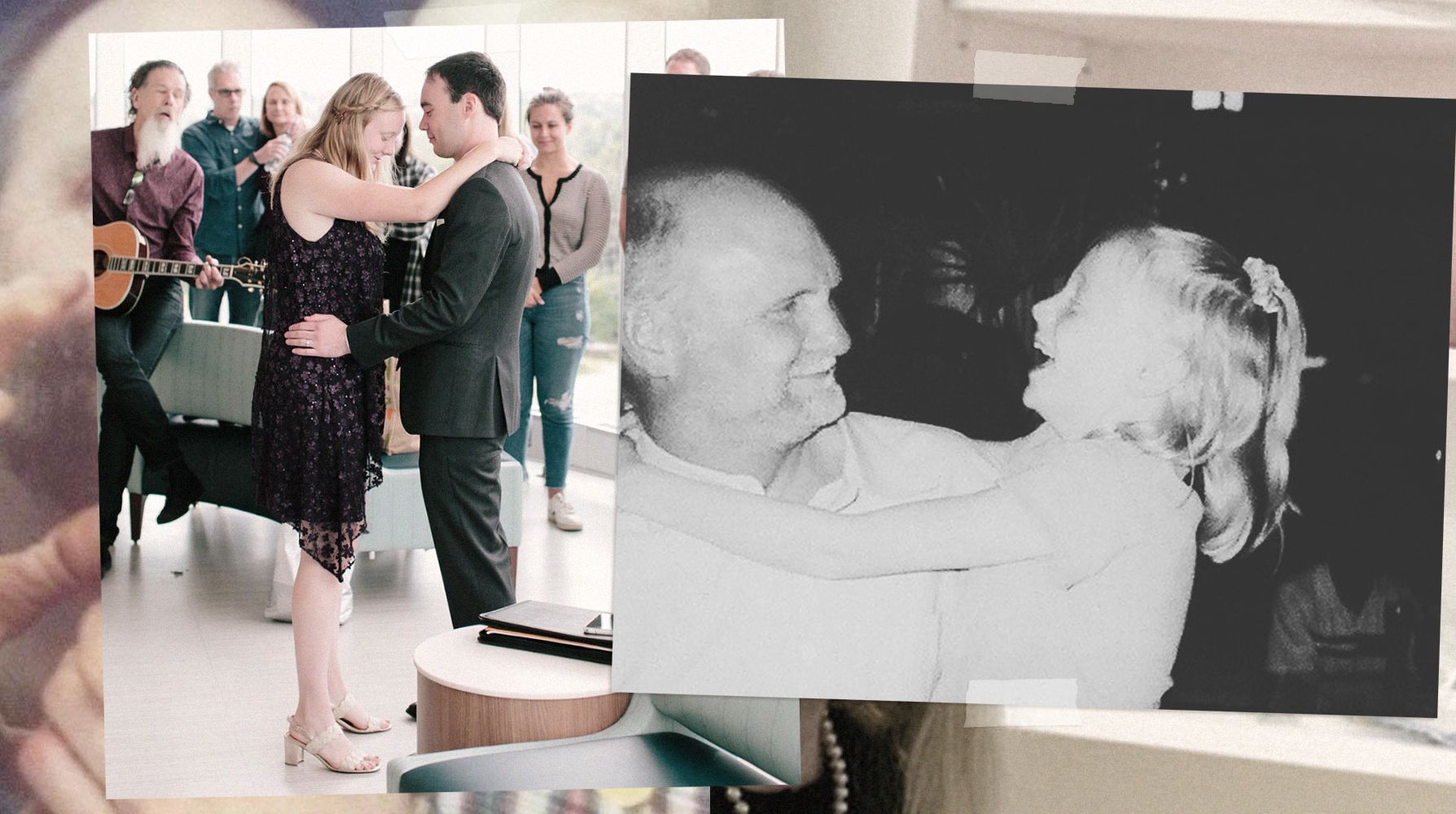
Mika Adeniran Kuyoro is a Brooklyn-based freelance writer, actress, and co-host of Talk To Us Nice podcast. Follow Mika on Instagram @mikaadeniran
